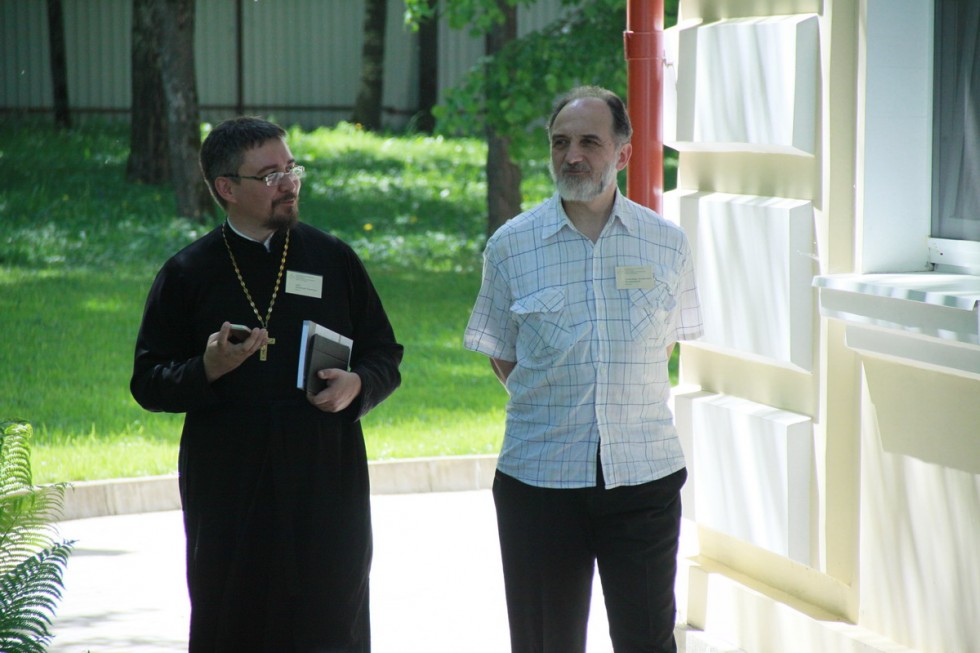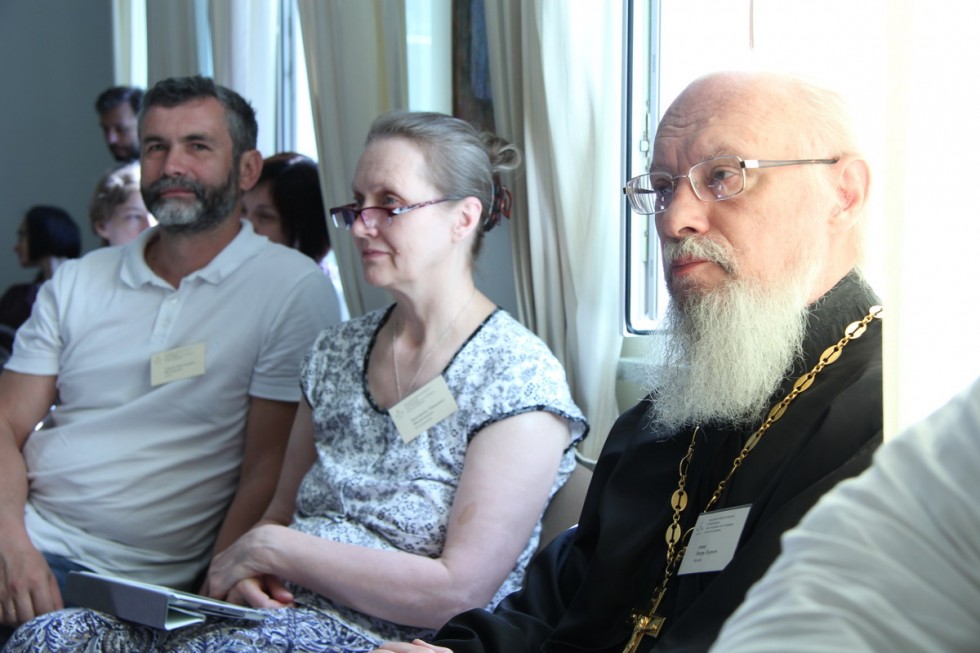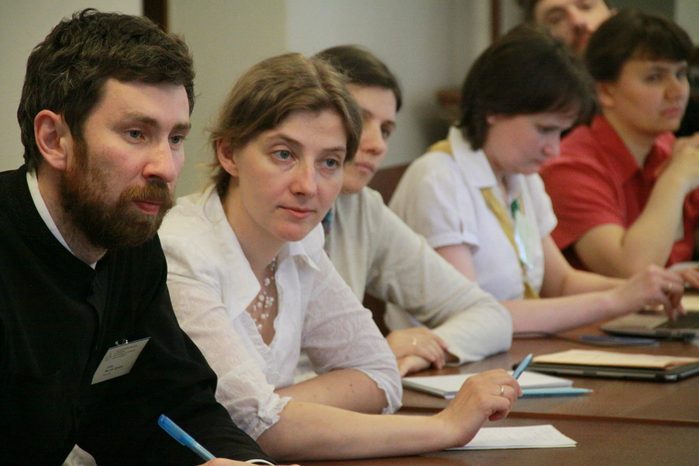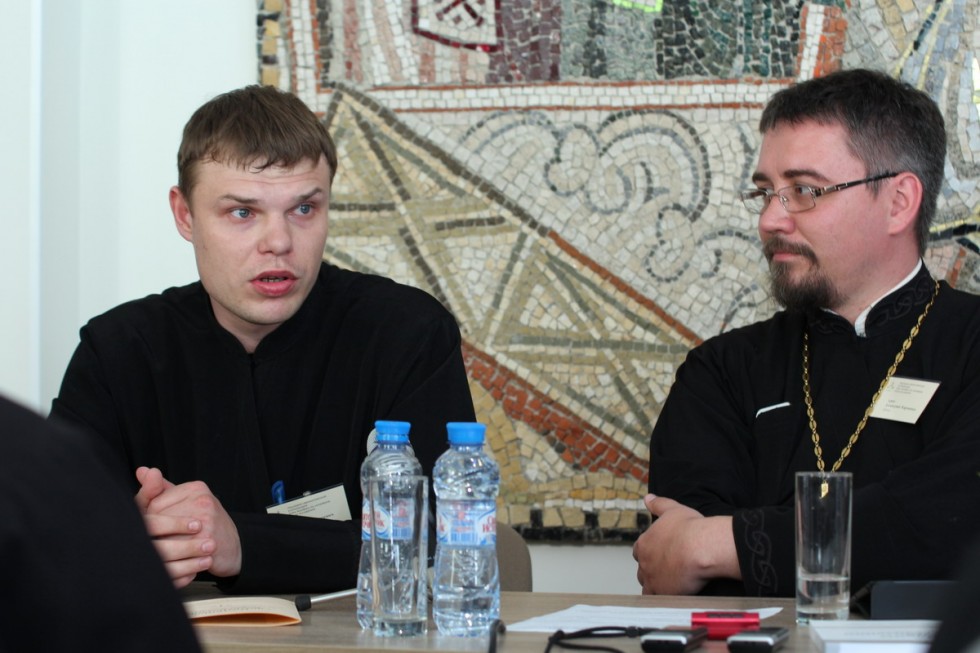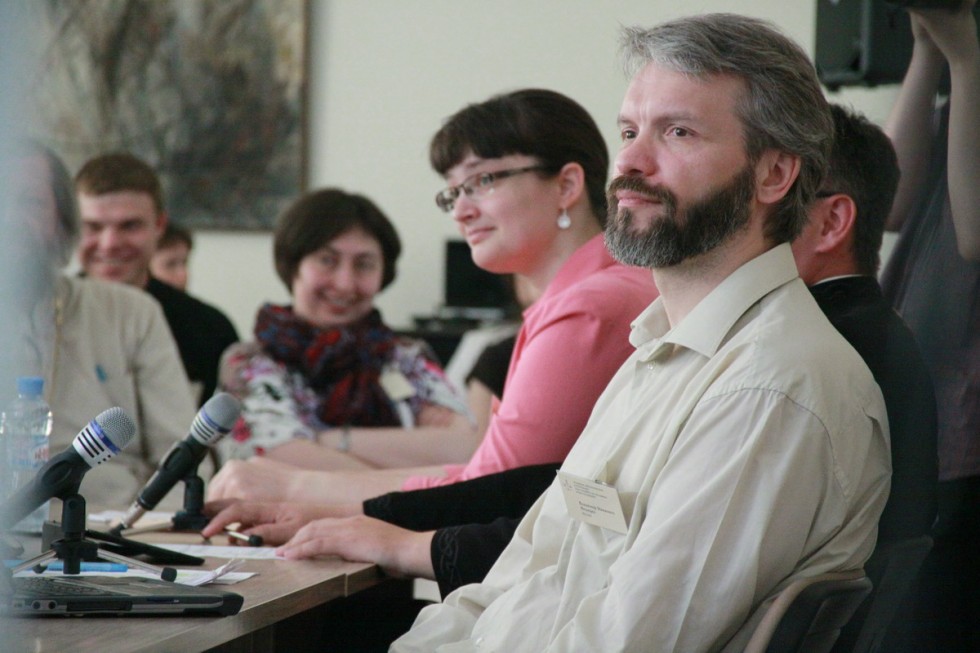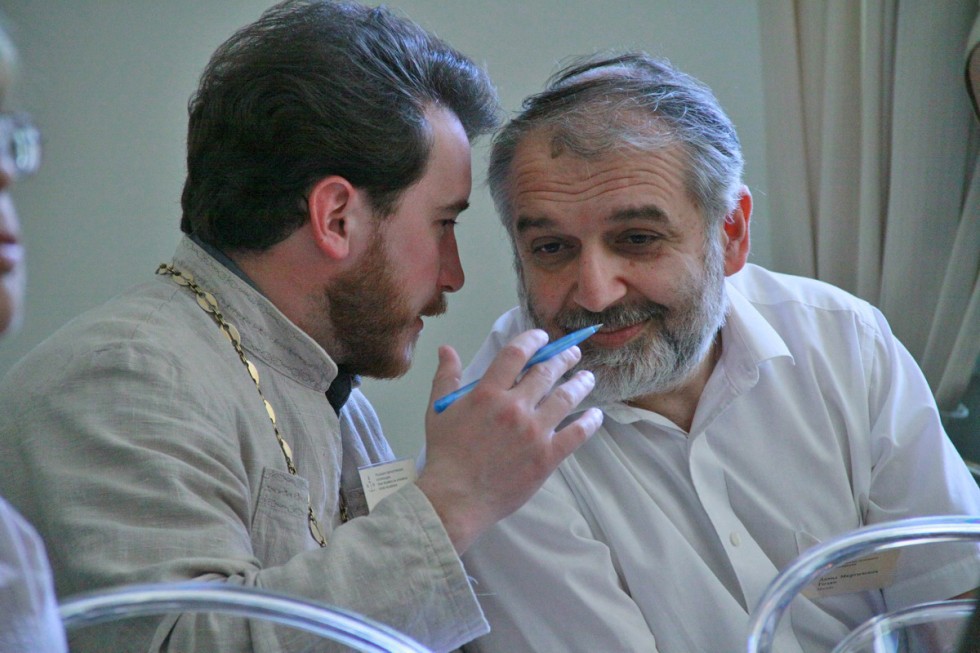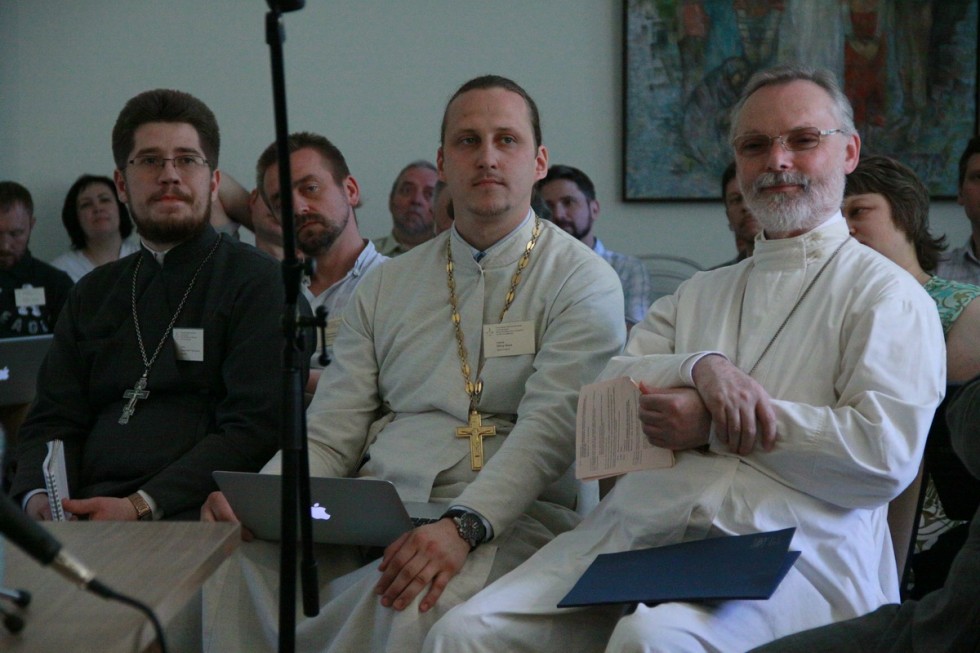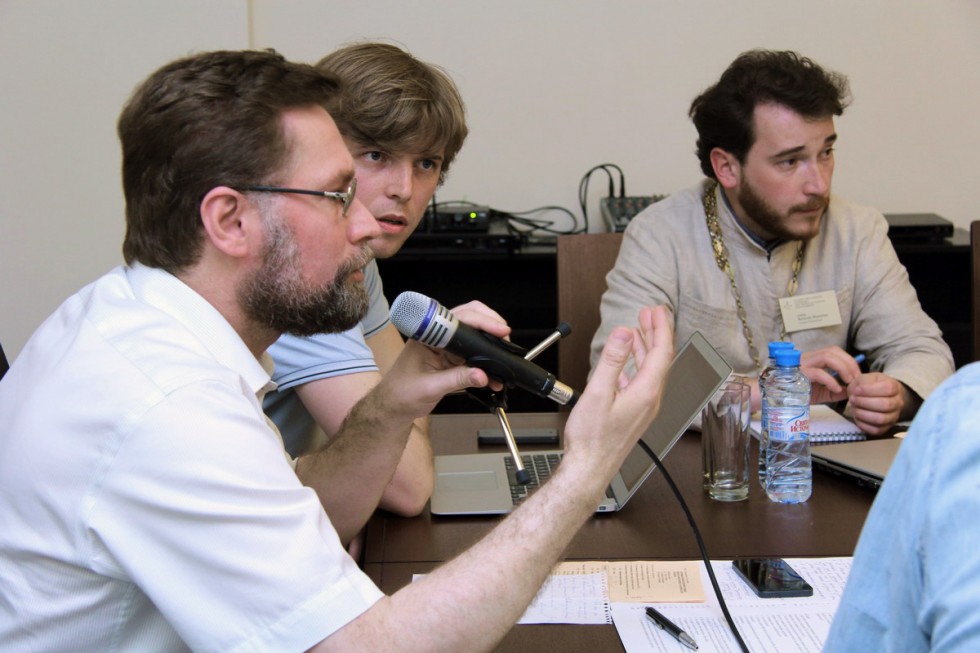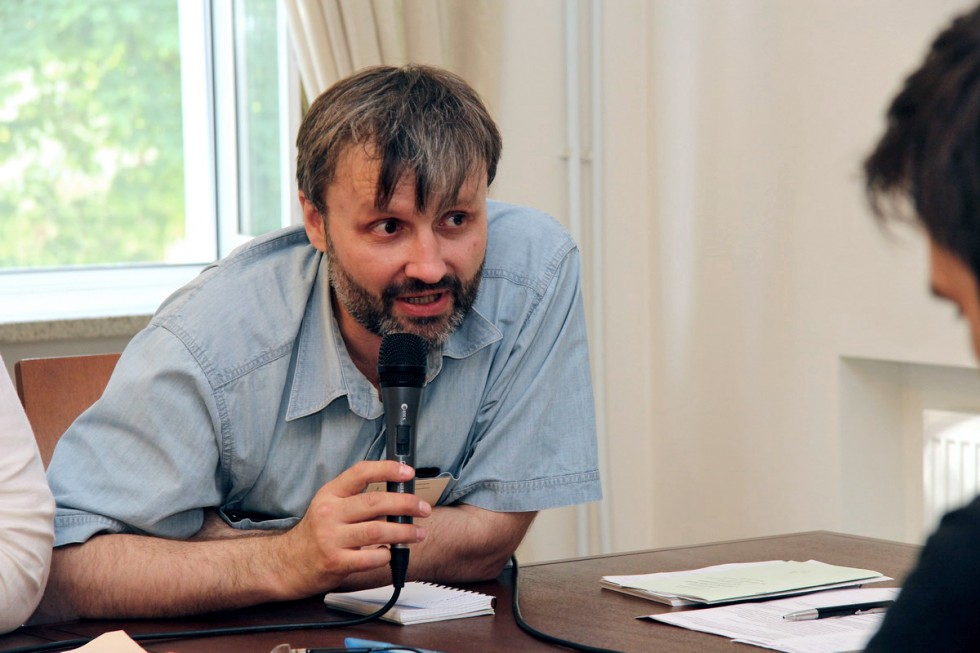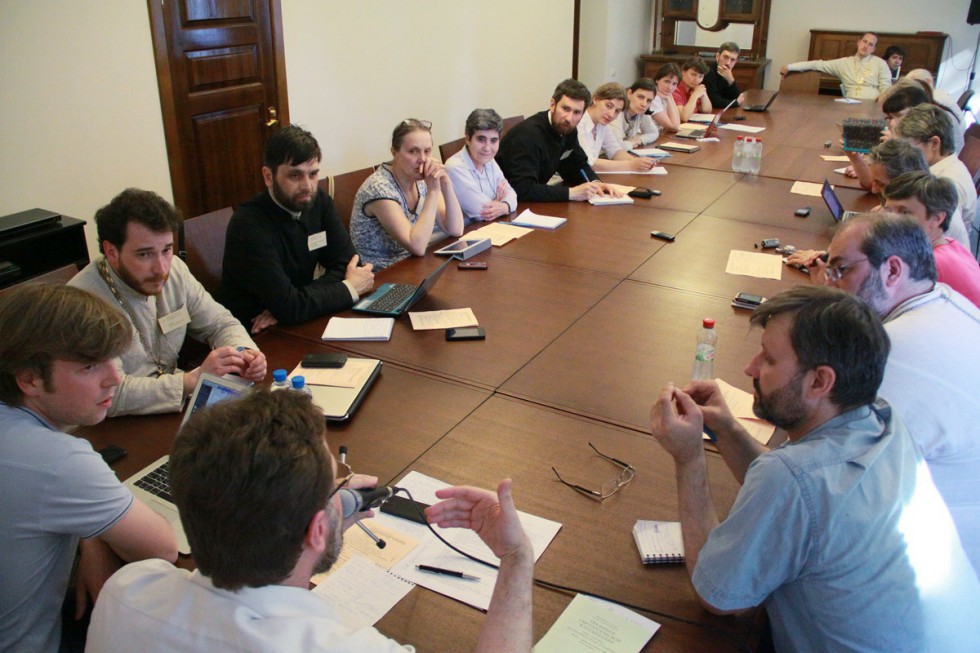God Does Not Commit Evil
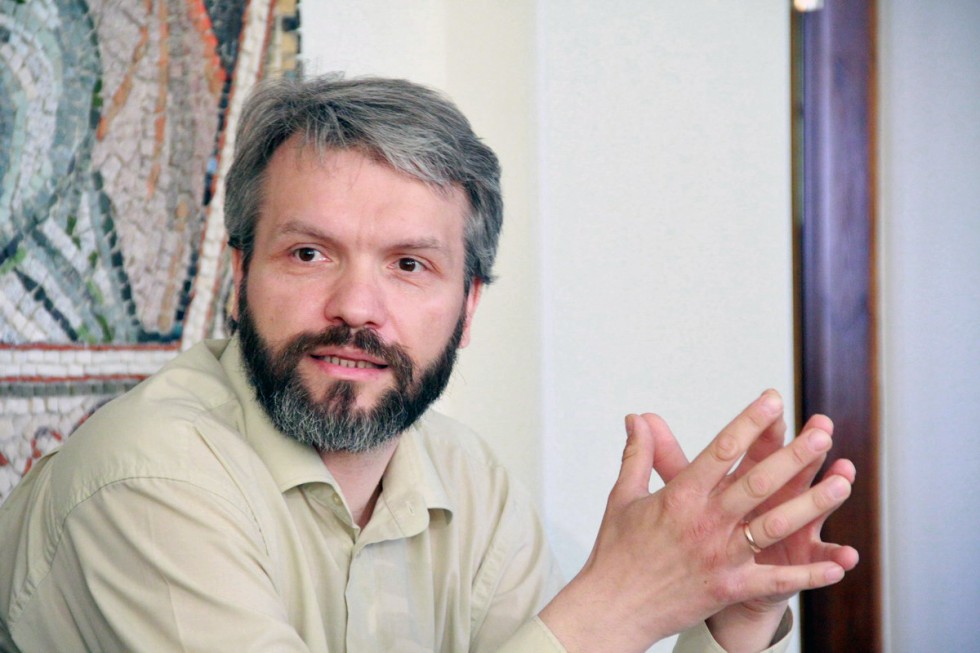
The Fall of man and its consequences is among the key themes in catechesis. The most difficult thing for catechumens is to realise that the source of evil is in man himself. It is human nature to be looking for external reasons and justifications for one’s own sins and deeds. Even Christians are often eager to accept the idea that it is God who allows temptation, suffering and evil. The revelation that evil comes from the human heart may dishearten, but it can also awaken the thirst for Christ as one’s personal Savior and lead to genuine repentance.
The topic of partially overcoming the consequences of the Fall through Old Testament law and pedagogy towards Christ was discussed by Dionysius Ovchinnikov, student at the Kuzbass Theological Seminary, Protopriest Maxim Melinti (Kishinev) and Olga Yaroshevskaya, graduate of St Philaret’s Institute.
Based on their own experience of catechesis in Krasnoyarsk and Khabarovsk, Priests Peter Boyev and Viktor Dunayev explained how catechumens learn to fulfil the law of God.
The second day ended with a seminar about the practice of drawing up ‘personal commandments’ at the main stage of catechesis. Normally, by this stage catechumens already understand the experience of following the ten commandments of Moses. ‘Personal commandments’ are aimed at helping a person take the next step towards discovering his own sins and recognizing ‘idols’ of which he is not free. The catechists discussed how to help people not to commit themselves to tasks that are abstract and unrelated to life on the one hand while at the same time to not to expect themselves to achieve the impossible.
